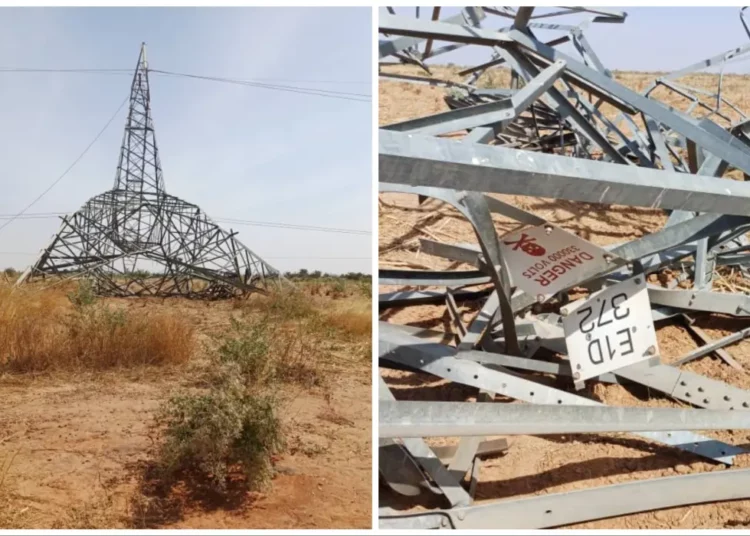Lately, there have been an increasingly disturbing trend perpetrated by enemies of society who vandalise state owned infrastructure either out of sheer mischief or for pecuniary reasons. Not that such unconscionable behaviour is new or strange in Nigeria, what is condemnable is the audacity and extent of such actions.
Two recent acts come to mind. First is an ongoing vandalism on the newly constructed and commissioned second Niger Bridge. The matter is so serious that the federal government had to raise an alarm over the activities of those urchins and debased miscreants.
The act of vandalism involves the destruction of the expansion joints used to absorb the thermal expansions of the bridge.
Minister of Works, Engineer David Umahi, reacting to this perceivably bsad development, expressed shock that reports of vandalism are still being recorded despite the presence of the private security outfit deployed by the Federal Ministry of Works to guard the facility.
He rightly described the act as a ruthless and deliberate act of sabotage on a key national infrastructure that has immense socio-economic benefits to the contiguous States and indeed the entire nation.
The minister, however, promised to reward any person or group that effects the arrest or gives useful information on the identity of perpetrators of vandalism on the bridge or any other road infrastructure nationwide.
He appealed to states and communities where such projects are located to take ownership and contribute their quota to safeguarding them. The case of the Niger bridge captures the tale of other road infrastructure across the country.
The other incident was the vandalism on the Abuja-Kaduna rail tracks last week. On June 5, many passengers were stranded when a Kaduna-bound train from Abuja derailed at Asham station in the federal capital territory (FCT).
A report claimed that the train derailed at about 3:52pm, barely 30 minutes after it departed from Kubwa station in Abuja. But after three hours of being stranded, the passengers were returned to Abuja and left to get alternative means of transportation or postpone their trip.
Confirming the situation, the Nigerian Railway Corporation (NRC) said the derailment of the train was caused by vandals who removed the track fastening clips.
A statement by NRC, said that the incident was caused by a technical hitch and passengers on board were safely returned to Abuja (Idu).
It’s interesting that the statement described the situation thus: “This minor hitch is attributed to the removal of track fastening clips by vandals. However, the NRC Management remains resolute towards ensuring the safety of our valued passengers in the entire system.”
The situation caused some cancellations of the train service. On May 26, a train that departed Rigasa station in Kaduna for Abuja derailed in a mountainous area near Jere. Three carriages were said to have gone off the tracks, but there were no casualties.
It is insightful that vandals stole no less than 150,000 rail clips between 2022 and 2023. This much was disclosed by the corporation.
These two scenarios are just a reflection of what has been happening across the country for a very long time. Vandalising power installations have always been commonplace, causing power outages and other negative aftermaths.
It smacks of high wickedness, in our opinion, that persons would deliberately vandalise state infrastructure without caring about the implications such could have on their fellow humans. The mindlessness on the part of the criminals is baffling to say the least. Their insensitivity to the effect of their act on fellow humans beings reflects how dark and evil some persons have become.
What is lamentable is that such unpatriotic act persists in spite of security arrangements as alluded to by the minister of works.
As a newspaper, we think that those who engage in this act can be found out by picking those who patronise them. It is common knowledge that the vandals who strip the infrastructure of these metals sell them more often than not. It is only a given that for such an act to continue, there is a thriving recycling market for scrap metals. That could be a good lead for any serious investigation.
As for security measure, we believe that the deployment of more strategic technology can help to address the issue alongside stationing security personnel.
Meanwhile, we would have thought that some security measures could have been embedded into the project at the conceptualisation and execution stages.
If there is none, it is our view that it is not yet late to invite all stakeholders, federal and state governments as well as community leaders to a meeting to discuss modalities for providing security around public infrastructure.
It is essential that the matter is given the urgent attention it deserves.





